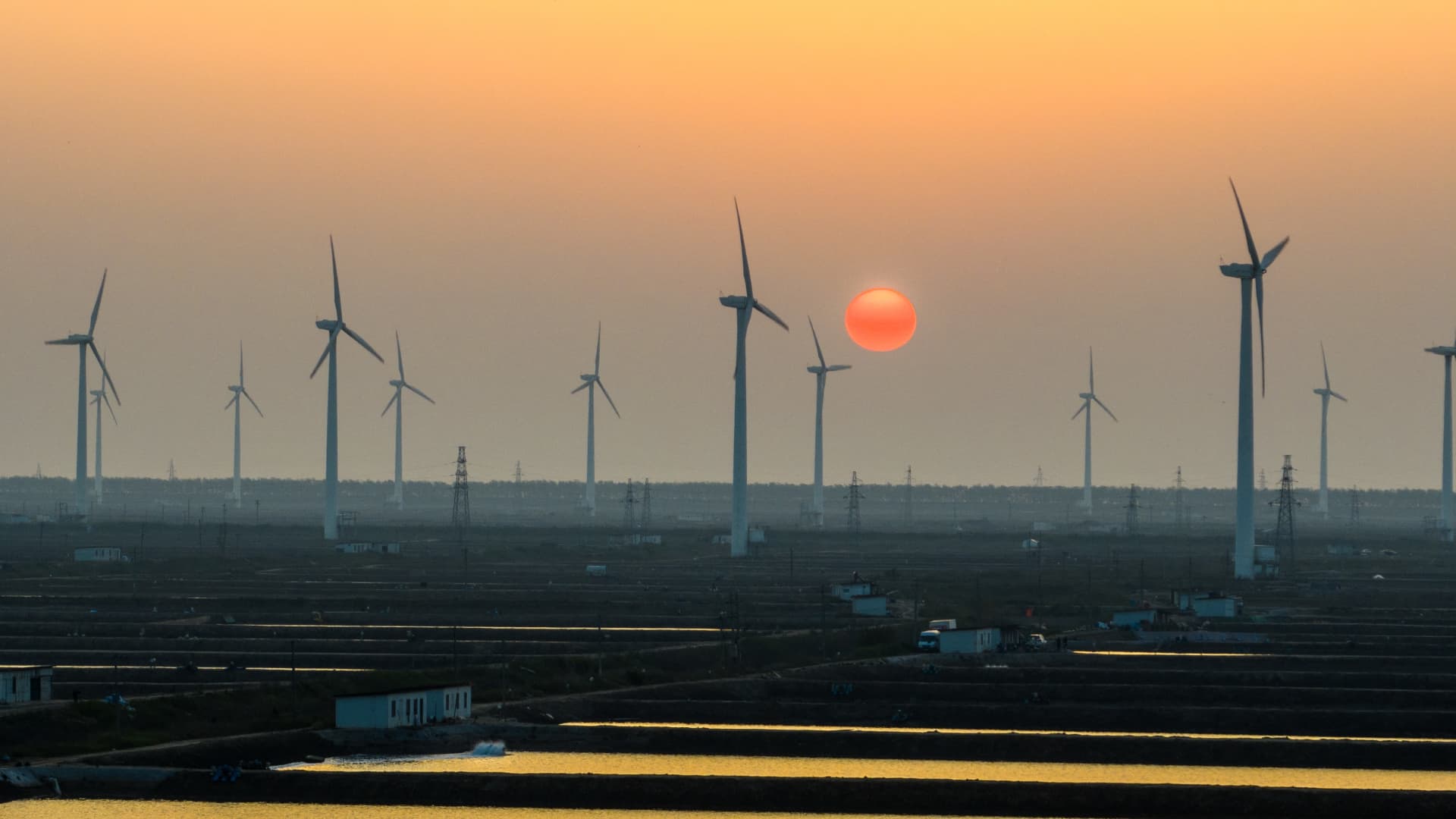
Wind power generation and shoal aquaculture are seen at a demonstration base of coastal shoal industry in Yancheng City, East China’s Jiangsu province, May 16, 2023. (Photo credit should read Lu Hongjie / CFOTO/Future Publishing via Getty Images)
Lu Hongjie | Future Publishing | Getty Images
The world’s energy system is no longer “fit for purpose,” according to World Energy Council CEO Angela Wilkinson, who alluded to lackluster momentum toward a planned green energy transition.
“The most recent pulse from April shows that the world energy system is no longer fit for purpose,” Wilkinson told CNBC’s “Squawk Box Asia” Wednesday, in reference to the findings from her organization’s Energy Pulse reports which offer snapshots of trends across the energy ecosystem.
The council’s most recent report forecasts that around half of the global energy system will still not be electrified by 2050, which would mark a blow to many governments’ net-zero pledges.
“The concern from most energy leaders is [that] the pace of change is too slow to keep us on track for the Paris Agreement,” she continued. The report cited 64% of global energy leaders sharing their concerns.
The world’s governments agreed in the 2015 Paris climate accord to limit global heating to well below 2 degrees Celsius, compared to pre-industrial levels, and pursue efforts to limit the temperature rise to 1.5 degrees Celsius.
The slow pace of the planned energy transition could be attributed to stresses on energy capacities and security even before the coronavirus pandemic, Wilkinson said.
Following the onset of the Covid-19 pandemic, global energy markets have also been impacted by a series of setbacks: Russia’s invasion of Ukraine, Europe’s decision to decouple from Russian hydrocarbons and a looming global recession. Which has caused energy markets, and the global system, to tread a fine balance.
“We are trying to grow [and] build a double size energy system to meet demand, [and] at the same time, decarbonize the energy system faster than ever before,” Wilkinson told CNBC.
Taxes an impossible feat?
The planned journey to net zero has been underpinned by a variety of toolkits aimed at shifting energy mixes away from fossil fuels toward zero or low-emissions energy sources. One approach is the adoption of carbon taxes, which is a fee levied on greenhouse gas emitters for each ton of carbon they emit.
Forty-six countries are pricing emissions by means of carbon taxes or other emissions trading programs, according to data last year from the International Monetary Fund.
“A global carbon tax would just be impossible to administer,” Wilkinson said. “There’s no such thing as a true market price of energy, or a true market price of carbon, because you’ve got subsidies, you’ve got regulations, you’ve got very uneven economies and playing fields.”
The importance of the tax lies in its price signaling mechanism for both investors and consumers, she added. “There is a cost of carbon that needs to be borne by societies … so the signal’s important.”


